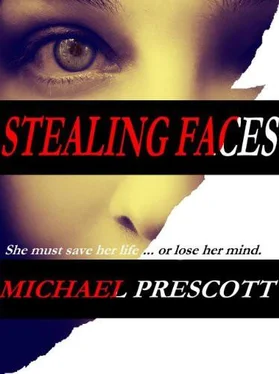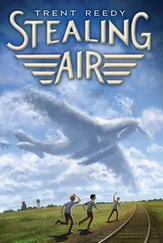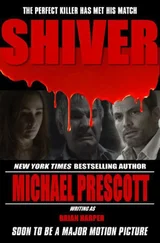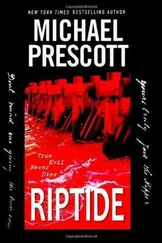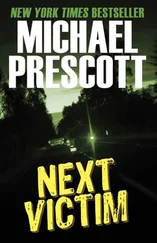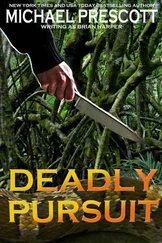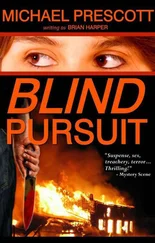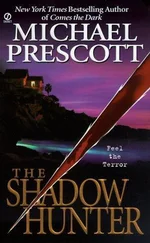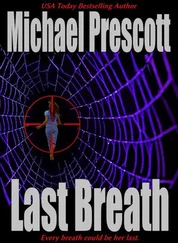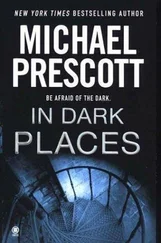Michael Prescott - Stealing Faces
Здесь есть возможность читать онлайн «Michael Prescott - Stealing Faces» весь текст электронной книги совершенно бесплатно (целиком полную версию без сокращений). В некоторых случаях можно слушать аудио, скачать через торрент в формате fb2 и присутствует краткое содержание. Жанр: Триллер, на английском языке. Описание произведения, (предисловие) а так же отзывы посетителей доступны на портале библиотеки ЛибКат.
- Название:Stealing Faces
- Автор:
- Жанр:
- Год:неизвестен
- ISBN:нет данных
- Рейтинг книги:4 / 5. Голосов: 1
-
Избранное:Добавить в избранное
- Отзывы:
-
Ваша оценка:
- 80
- 1
- 2
- 3
- 4
- 5
Stealing Faces: краткое содержание, описание и аннотация
Предлагаем к чтению аннотацию, описание, краткое содержание или предисловие (зависит от того, что написал сам автор книги «Stealing Faces»). Если вы не нашли необходимую информацию о книге — напишите в комментариях, мы постараемся отыскать её.
Stealing Faces — читать онлайн бесплатно полную книгу (весь текст) целиком
Ниже представлен текст книги, разбитый по страницам. Система сохранения места последней прочитанной страницы, позволяет с удобством читать онлайн бесплатно книгу «Stealing Faces», без необходимости каждый раз заново искать на чём Вы остановились. Поставьте закладку, и сможете в любой момент перейти на страницу, на которой закончили чтение.
Интервал:
Закладка:
Cray lurched upright, his face wild, and grabbed for the open door.
She saw his gloved hands seize the door frame, and then the Lexus surged forward as she wrenched the gear selector into drive and stomped the gas pedal.
Cray’s gloves, shiny with ice, slipped free of the door, and he fell again in the dirt.
Elizabeth watched him fall, then looked ahead, and there was a low wall of cactus rushing at the Lexus, no way to dodge it or even slow down, and she screamed as the chassis bucked with impact, the foliage sliding under the wheels, dirt rising everywhere in thick spiraling drifts.
Then she was in a clear patch, steering between obstacles, and behind her Cray dwindled in the rearview mirror, a dusty, staggering figure, all in black, so small now, smaller than she could have imagined, and finally gone in the night.
She kept driving, the accelerator on the floor, the big Lexus careening like a carnival ride.
There was a dirt road somewhere and a paved road beyond it, but she knew she couldn’t find either of them, not now.
She raced through the trackless desert, plowing up clumps of prickly pear, skirting the big saguaros, barely able to see, because her control had shattered at last, and she was crying.
13
Cray walked for two hours through the desert, following the Lexus’ tire tracks. His hands still ached with cold from the liquid nitrogen spray, and he found it difficult to flex his fingers.
Only the black leather gloves had saved him from serious injury. The gloves — and his reflexes. Had he been less quick to react, she would have sprayed him in the face, and he would have been permanently blinded.
As it was, he had shielded his eyes, and the gloves and his long shirtsleeves had absorbed the worst of the spray. The gun, too, of course. The Glock remained frozen, its trigger immovable, the slide locked.
Tonight’s misadventure was his first defeat. In years of deadly sport he had never lost to an adversary, had never known the embarrassment of failure.
Still, he would overcome this setback. He would find a way to win. He would bring Kaylie down.
The task posed challenges, to be sure, but he had faced and surmounted many challenges already. A lifetime of challenges.
What he was now, he had made of himself by a concerted and persistent exertion of will. He was not a born predator — at least no more than any man.
At the beginning, he had been only a precocious little boy, a boy kept soft and sheltered, doted on by his mother and grandmother, his sole caretakers in a household barren of a father.
Johnnie Cray had been told that his daddy was a policeman killed on duty, a story that sustained him in his earliest years, until he learned that it was a well-intentioned lie, and that his father was, in fact, a television repairman who had run off with his mother’s best friend when Johnnie was six months old. He left a note explaining that childbearing had made Johnnie’s mother fat.
As a small boy, Johnnie knew nothing of such unpleasantness. He knew nothing of ugliness or pain. His mommy and grandma did their best to protect him from life’s stronger jolts. They kept him apart from other children, fed him sweets, ruffled his hair, and praised his blossoming intelligence.
You’re special, Johnnie, his mother would tell him. You’re so smart. You’ll do great things with that mind of yours.
And Cray, so small, had puffed with pride at the words and the future that was their promise.
Then, at the age of seven, he started school. And things changed.
School was a different world, a universe of coarse humor and petty tests of manhood for which he was utterly unprepared. He became the goat, the class joke, the universal victim. The pack smelled his weakness. They pounced.
His nemesis was Billy Curtis. Billy hounded him. And Billy was everything Cray had been protected from, everything despicable in human nature. He was unintelligent and crude. He spit food. He made farting sounds. He kicked people. He notched stick-figure graffiti into the bathroom wall.
And he hated Johnnie Cray. Johnnie Cry-baby , he called him. Johnnie, who wears diapers. Johnnie, who's such a good little girl.
Cray was nine years old, a third grader, having endured two years of this torment, when one day at recess Billy Curtis tackled him for no evident reason and threw him helplessly to the ground. It had rained that morning, and the pavement was wet and muddy. Cray fell in the slop and lay there, gasping, as all the other boys and even a few unkind girls gathered in a circle to laugh.
Billy Curtis, performing for his audience, capered in triumph and yodeled a singsong doggerel: Johnnie, Johnnie, better call your mommy !
And Cray, on his knees, stared up at Billy, chanting and cavorting, swinging his loose arms, an ape in triumph, and he knew suddenly that Billy Curtis was quite literally an ape — an animal, mindless and savage.
Hating Billy, Cray conceived his revenge.
The next evening he climbed the fence to the Curtises’ backyard, where he stole Billy’s dog, a half-blind, arthritic schnauzer named Shoe. Cray took the dog into the woods, carrying it bundled in his arms. He would always remember the dog shivering in confusion and fear, yet staying quiet — too old, it seemed, to present any resistance.
In the woods he tied a leash around Shoe’s neck, and then with cold intent he pulled the leash tight and slowly, very slowly, he strangled the dog to death.
Shoe took a long time to die, wheezing and pawing at the damp, clotted earth. Finally a shudder of surrender hurried through the small body, and the schnauzer was dead.
In that moment Johnnie Cray’s anger left him, and he was just a little boy, poking at the dog, both fascinated and horrified by the simple phenomenon of its lifelessness.
He had meant to throw the dead dog over the fence into Billy’s backyard, but he found he couldn’t do it. Abruptly he was stunned by his own savagery, ashamed, unwilling to advertise the act. Instead he dug a shallow grave near an oak tree and buried Shoe in secret, crying as he filled in the hole.
He did not sleep that night. He lay awake in the great darkness which seemed so unnaturally still, and he thought about the thing he had done and the reasons for it.
Billy Curtis was an animal, yes. But Johnnie Cray was no better, was he? He too was nothing but an ape, driven by anger to an act of violence he could not justify.
Strangely, this thought, when it finally formed itself in words, eased his distress. If he was only an animal, then he couldn’t be blamed for what he’d done. He might be no better than Billy Curtis, but at least he was no worse. No worse than anyone, because they were all like that, everybody on earth. All of them were animals, even the grownups in their business suits and cars and offices. All of them, at heart, were no different from Johnnie Cray.
He was not an outcast, then… or if he was, it was only because he saw a truth that others didn’t. Saw it and acted on it.
All this he had understood at the age of nine. In the thirty-seven years since, he had not wavered in his fundamental faith.
By degrees, year after year, Cray had pursued a higher understanding of this truth, peeling away humanity’s pretensions to greatness, sloughing off any notion of human dignity as a mere antique curiosity. He had explored the deepest dimensions of his bestial inheritance, confronting it even though it scared him, even though at times he felt he couldn’t bear the truth he faced — until finally he had broken through to a new, exhilarated self-acceptance, the end of denial, full and grateful surrender to the predator within, a surrender so complete that in its throes he would crane his neck and bay the moon like a mad animal.
Читать дальшеИнтервал:
Закладка:
Похожие книги на «Stealing Faces»
Представляем Вашему вниманию похожие книги на «Stealing Faces» списком для выбора. Мы отобрали схожую по названию и смыслу литературу в надежде предоставить читателям больше вариантов отыскать новые, интересные, ещё непрочитанные произведения.
Обсуждение, отзывы о книге «Stealing Faces» и просто собственные мнения читателей. Оставьте ваши комментарии, напишите, что Вы думаете о произведении, его смысле или главных героях. Укажите что конкретно понравилось, а что нет, и почему Вы так считаете.
